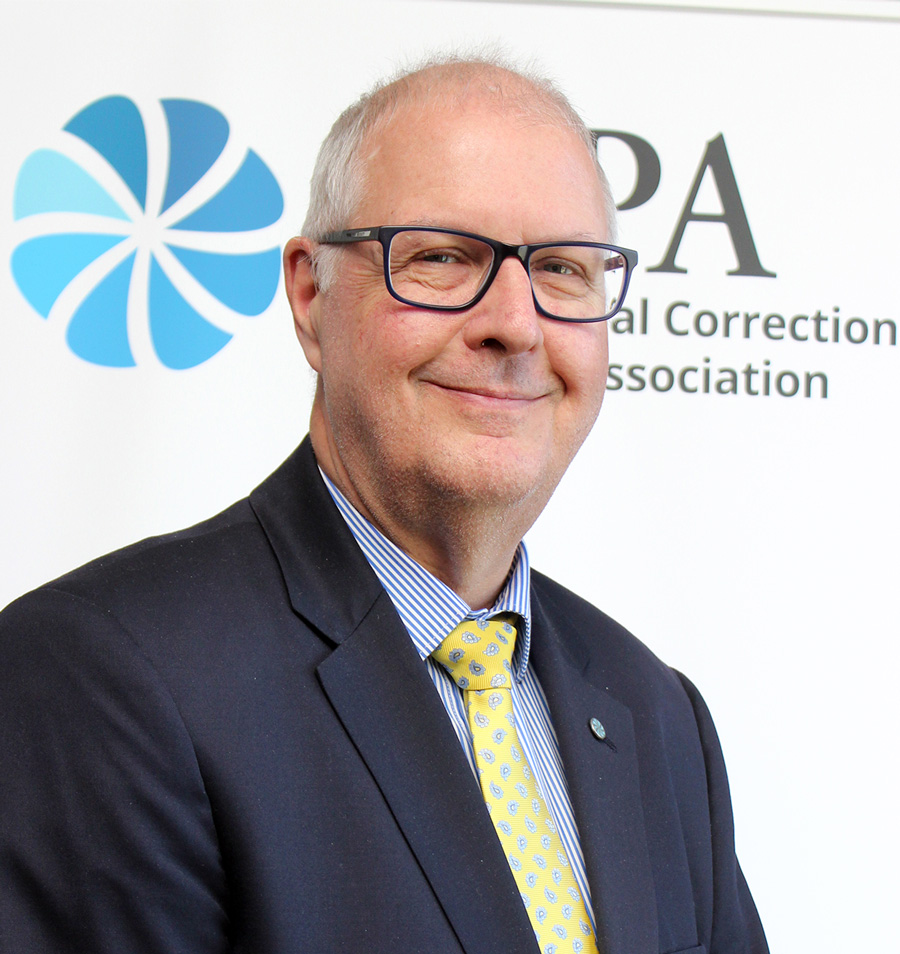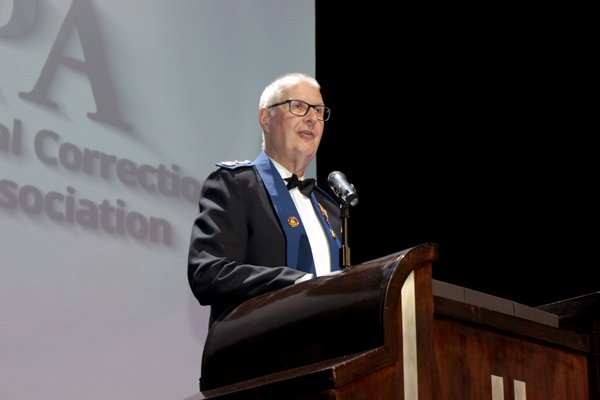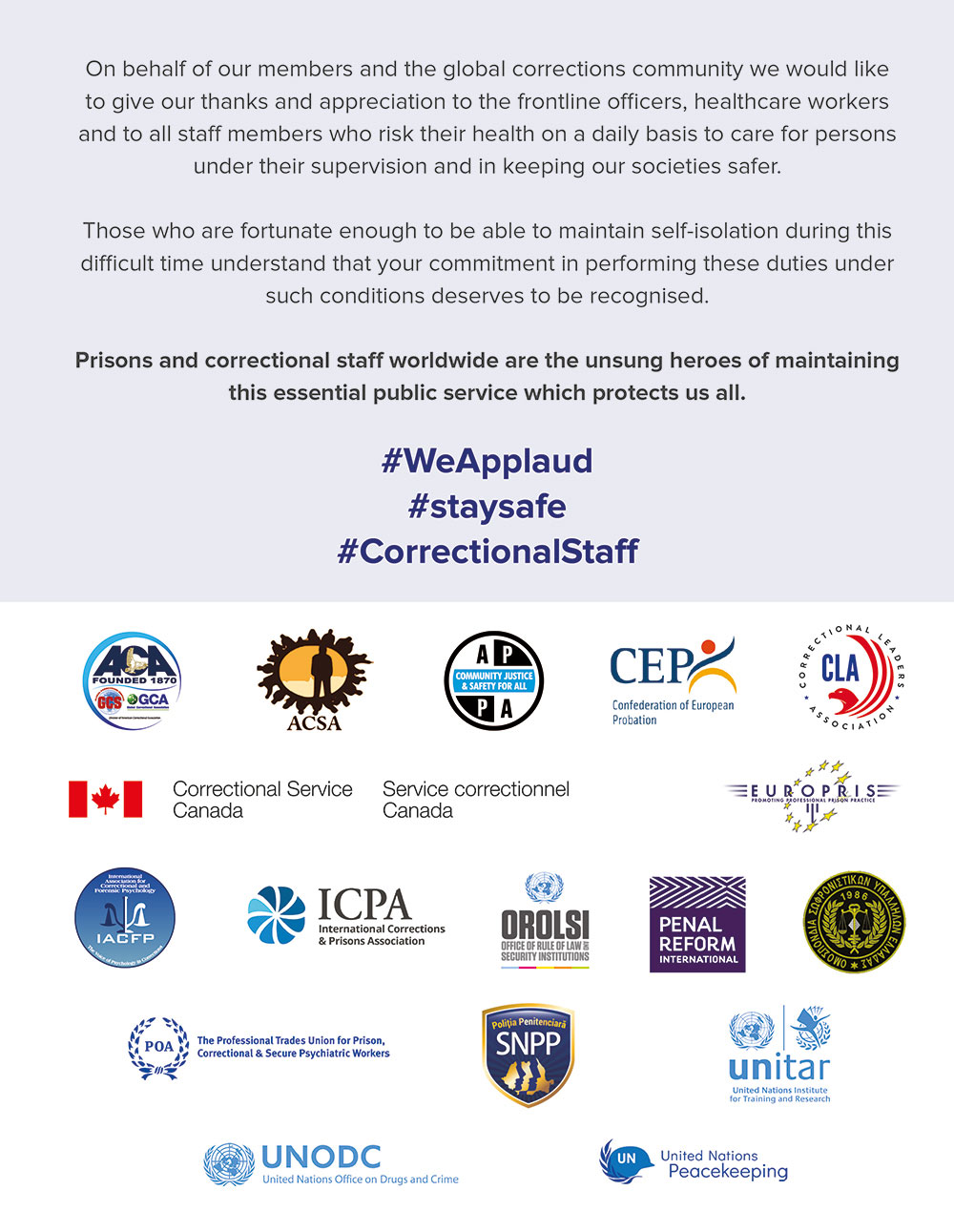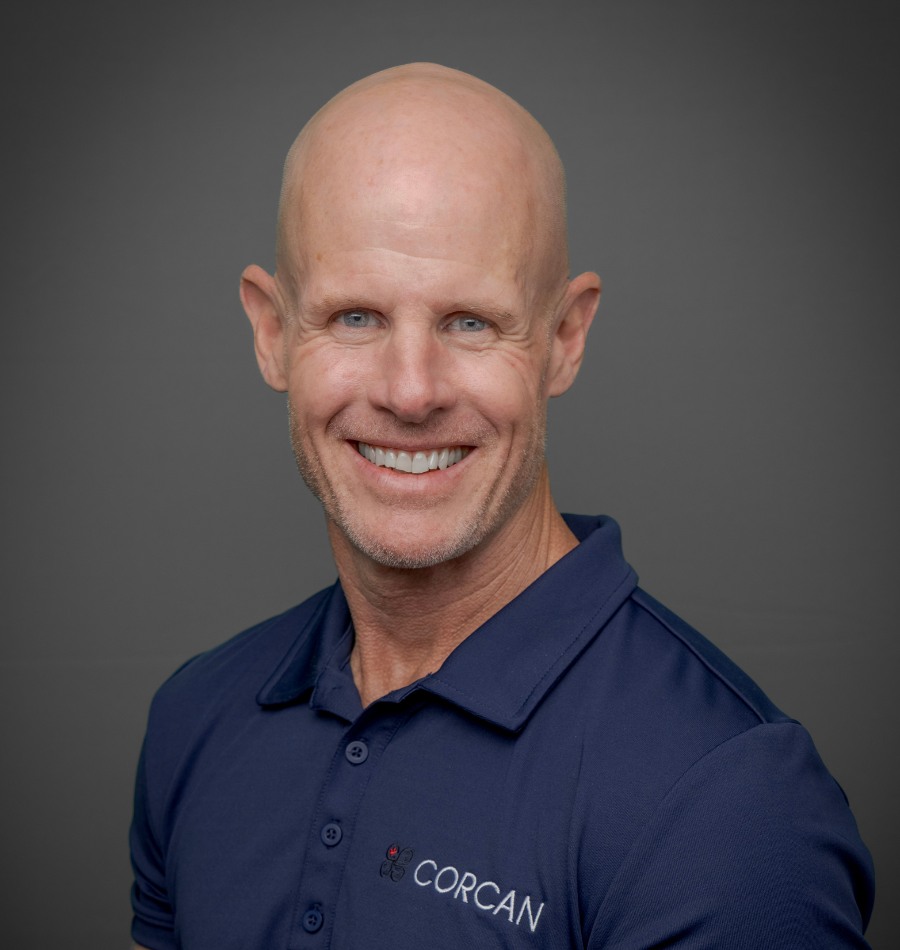// Interview: Peter Severin
President of the International Corrections and Prisons Association (ICPA)
JT: ICPA is an association with over twenty years of existence, and we can say that it is the only global community of agencies and professionals in the correctional sector. You have been recently elected as President. How do you view your new role as President of the ICPA? What legacy do you want to build within the Association?
PS: Firstly, I think it is a very exciting role and a great honour to have been elected as President of such an outstanding organisation like the ICPA. I have been involved with the ICPA since 2001, when it first had its conference here in Australia.
My legacy, that I hope to be able to build, is based on what the organisation has already done: foster best practice in corrections across the globe, whether in the context of developed countries or developing countries. Doing so in an evidence-based manner and predominantly maximizing the use of community corrections. In addition to continue to improve what we do in our prisons, very strongly looking at technology as an enabler of good practice in corrections, wherever we are.
JT: And in terms of footprint that you would like to leave for the next years that you will be spearheading the association. What would you like to really work on?
PS: I believe what we really need to do is foster the extension and the extended use of community-based corrections, probation and parole, and particularly look at cohorts of offenders who really should not be in prison. The work that we are currently doing in relation to women incarceration is important in this context.
We also need to work with countries that do not even have community-based sanctions and create opportunity for those countries to look at community-based alternatives. The ICPA has done a great job already in that space, but it is time now for us to think well beyond prisons across the whole criminal justice system and see what else works.
We also need to work with countries that do not even have community-based sanctions and create opportunity for those countries to look at community-based alternatives. The ICPA has done a great job already in that space, but it is time for us to think well beyond prisons across the whole criminal justice system and see what else works.
JT: What priorities do you want to address?
PS: Most priorities relate to enabling strategies. Technology, for instance. We need to harness and maximize the use of technology to enable us to do our job better. Then we need to focus on corrections staff. We have already made a significant investment in staff training and in assisting staff training programs, particularly in developing countries. We need to continue doing that because they are the people that make it happen. And in that context, it is also about well-being and resilience for staff to do the job well.
I also want to focus on alternatives to prisons. I see a long road ahead, and this is an area that is important for societies, to continue improving and continue harnessing and implementing best practices.
The ICPA is in a unique position: we have experts from around the world, coming from the public sector, private sector, the academic field, the non-government field. Just by gathering that expertise and making it available can benefit all in many ways. Looking at evidence, at developing packages for staff training, at enhancing the options that the criminal justice systems have other than just prison, is a great opportunity for the ICPA in supporting corrections across the globe.
JT: What do you think are the key challenges facing the correctional sector and to what extent can the ICPA help correctional services around the world face those challenges?
PS: The ICPA is in a unique position: we have experts from around the world, coming from the public sector, private sector, the academic field, the non-government field. Just by gathering that expertise and making it available can benefit all in many ways. Looking at evidence, at developing packages for staff training, at enhancing the options that the criminal justice systems have other than just prison, is a great opportunity for the ICPA in supporting corrections across the globe. We intend to develop our chapters in various parts of the world. We already have a very well-functioning chapter in North America. We are very keen to revitalize the chapters in Latin America and in Africa. We are going to create a new one in Europe, which will be quite different, because there already are several other organizations in that region. We really want to be a leading light, but at the same time a good partner for jurisdictions that can benefit from the expertise we bring together. Those that will do new things and develop new initiatives, policies, and even laws. The ICPA is well-positioned to support countries, jurisdictions, and the relevant decision-makers to improve what they are currently doing.
JT: Are only members of the ICPA able to take advantage of the association’s support?
PS: Generally, yes, we are a membership-based organisation and we serve our members. However, we also provide a lot of support for jurisdictions that may not be members. For example, we have been running leadership development programs in Africa. While the country that has been hosting us, Namibia, is a member, other participating countries may not be members. When we implement our programs and participate, we do not limit that to members. Nonetheless, as a membership-based organisation, we make some services exclusively available to them. It is a two-way street. Yes, membership goes first! But we also have no problems in supporting non-member countries, where that makes sense.
JT: What is, for you, the value of partnering relationships with other agencies in the correctional sector, such as the Confederation of European Probation and EuroPris?
PS: There is no substitute for strong and good partnerships, and particularly in Europe that is very evident. We are also affiliated with the United Nations. We are working with Japan; we are working with the various jurisdictions in the Pacific region. Partnerships are quintessential for us doing what we hope to be able to do best, and that is to enhance correctional practice. We are actively looking to form partnerships, but it goes a bit further than that. We also have partnerships in the private sector where we have fantastic sponsor support, particularly in the technology space. We hope to leverage those with expertise and make it available to our members.
There is no substitute for strong and good partnerships, and particularly in Europe that is very evident. We are also affiliated with the United Nations. We are working with Japan; we are working with the various jurisdictions in the Pacific region. Partnerships are quintessential for us doing what we hope to be able to do best, and that is to enhance correctional practice.
JT: How will you combine the role of ICPA President with the role of Commissioner of New South Wales corrective services?
PS: It is really about the synergies between those two organisations, which will enable me to do both roles. It is not new. We had two ICPA Presidents that were at the same time Commissioners or Director-Generals of their service. Of course, I get some support here in Sydney in my own organisation. Likewise, ICPA through its executive team looks after the day-to-day business. A lot of the real challenging work is done by the executive team. Additionally, I have got a fantastic board of directors. Other directors, vice president, treasurer, and 13 board members make a great contribution to our organisation. It is a joint effort. It is about collaboration, that enables me to hopefully continue doing both jobs effectively.
JT: Will your leadership style at the ICPA be the same as Commissioner? How will your experience help with this new role at the ICPA?
PS: Yes, generally my leadership style is the same. However, my responsibilities are quite different. As a Commissioner I am responsible for one very large correctional system where I make many decisions that directly relate to the administration of prisons, probation, and parole, here in New South Wales. In the ICPA the leadership is more about having a very clear “vision”, and obviously very strong principles. Mostly driving the ICPA, representing the organisation together with the board in various forms. While I do not think I will have a completely different leadership, the responsibilities are slightly different between the role of a Commissioner and the role of President of the ICPA. In my view, whoever is President of the ICPA should have a very strong understanding and knowledge of corrections. It is only that expertise and responsibility that enables one to have a clear view and vision for the organisation, based on solid practice and experience. Hopefully, I will be able to make a concrete contribution as ICPA President, as well as continuing to be as effective as I can be as a Commissioner.
//
Peter has been the Commissioner, Corrective Services New South Wales, Australia since September 2012. Prior to this appointment Peter was the Chief Executive of the Department for Correctional Services in South Australia from July 2003 and worked with the Department of Corrective Services in Queensland, Australia for almost 15 years, his last position was Deputy Director-General. Peter started his corrections career in Germany in 1980. Peter has a strong background in corrections operation, offender management and intervention. He has extensive experience in prison management and policy formulation. He presided over significant prison infrastructure design, construction and commissioning and has particular expertise in the development of service standards for the delivery of correctional services by the private sector and contract management. In NSW he is currently responsibly involved with a $ 2.4 billion prison infrastructure program. Peter holds a Masters of Public Administration and Bachelor of Social Work degree. Peter has been a member of the International Corrections and Prisons Association Board (ICPA) since 2010, ICPA Vice President since 2014 and ICPA President since 2019.




